What Percentage of Elderly People Are Abused?
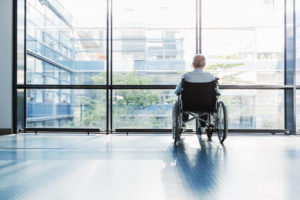 The sad reality is that getting accurate nursing home abuse statistics is not a straightforward process. One reason is a lack of widespread research on the abuse of this vulnerable population. The United States Department of Justice (DOJ) estimates that at least 1 in 10 elderly people will be abused.
The sad reality is that getting accurate nursing home abuse statistics is not a straightforward process. One reason is a lack of widespread research on the abuse of this vulnerable population. The United States Department of Justice (DOJ) estimates that at least 1 in 10 elderly people will be abused.
Because elder abuse goes largely underreported, that number could be much higher. It’s common for nursing home abuse victims to be afraid or unable to tell family, friends, or the police about the abuse.
“At least 10% of adults age 65 and older will experience some form of elder abuse in a given year, with some older adults simultaneously experiencing more than one type of abuse.”
— U.S. Department of Justice
The World Health Organization (WHO) believes 1 in 6 people living in community settings — such as at home or an assisted living facility — experience abuse.
Tragically, in institutional settings such as nursing homes or long-term care facilities, WHO found that 64.2% of staff reported having committed elder abuse.
What Is the Most Common Abuse in Nursing Homes?
According to WHO, psychological abuse — also known as emotional abuse — is the most common form of abuse in nursing homes.
The rate of psychological abuse reported by nursing home residents and their loved ones is 33.4%. Staff-reported psychological abuse is 32.5%. The similarity between these nursing home statistics suggests that roughly 30% of all nursing home residents will experience emotional abuse.
Psychological abuse in nursing homes may involve:
- Control by preventing a resident from doing what they want to do
- Harassment through insults or taunting
- Humiliation or disrespectful treatment
- Intimidation
- Isolation from friends, family, or other residents
- Verbal and nonverbal threats
- Withholding necessary assistive devices, such as glasses or hearing aids
While psychological abuse does not involve physical harm, the effects can be just as devastating.
Effects of emotional abuse in a nursing home may include:
- Cognitive and physical decline
- Guilt and shame
- Increased risk of death
- Psychological distress, depression, and anxiety
Since nursing home residents are often afraid to report abuse or complain about their abusers, all caregivers must watch for red flags. If your loved one has sudden behavioral changes, depression, or fear of a specific person, abuse or neglect may be occurring, and you should take action right away.
Where Does Most Abuse Occur?
According to the DOJ, most elder abuse occurs in a community setting — where the older adult lives (often in their home or their children’s home). However, WHO reports that elder abuse is also high in institutional settings such as nursing homes, with 2 in 3 staff admitting to having abused a resident in the prior year.
Who Commits the Most Elder Abuse?
Family members are most likely to commit elder abuse, with up to 64% of abusers living in the same home as the victim. This may include a spouse or adult children.
The National Center on Elder Abuse (NCEA) reports that up to one-third of abusers financially depend on the victim. However, those who commit abuse are often nursing home staff members and residents.
Among the nursing home statistics on characteristics of abusers are:
- They are 45 years old on average
- 62% are males
- 77% are Caucasian
- 38% did not graduate from high school
- 20-50% are substance abusers
- 25-35% suffer from mental illness
- 25-46% have a criminal record
How Often Is Elder Abuse Reported?
Perhaps one of the most heartbreaking nursing home abuse statistics is how likely it is for abuse to go unreported.
“It is estimated that for every one case of elder abuse which is reported to authorities, five go unreported.”
— Clinical Interventions in Aging
Elder abuse victims may not report abuse for the following reasons:
- Being dependent on their abuser
- Fearing retaliation
- Feeling ashamed or guilty
- Having a physical or cognitive impairment
- Worrying they will be sent somewhere worse
Additionally, medical conditions — such as Alzheimer’s disease or other forms of dementia — can hide the fact that abuse is occurring.
Are People With Dementia More Likely to Be Abused?
Yes. Nursing home abuse statistics point to people with dementia being more likely to suffer from abuse. According to the National Council on Aging (NCOA), almost half of older adults with cognitive impairment are abuse victims.
Some reasons why people with dementia are abused more frequently include:
- Failure to screen staff who do not have the required patience or compassion
- Insufficient staff training on how to care for people with dementia
- Negative working conditions in memory care units
What Are Some of the Effects of Elder Abuse?
While the side effects of elder abuse have many similarities, they can also be very different. This is why it’s essential to carefully monitor your loved one’s physical and emotional well-being.
In addition to victims responding to their abuse differently, nursing home abuse statistics also report that each form of abuse may cause its own set of side effects.
Side Effects of:
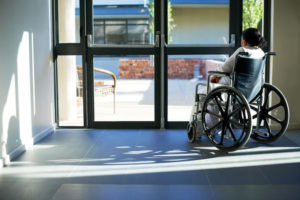
- Bedsores
- Dehydration and malnutrition
- Increased disability
- Physical decline, such as weight loss
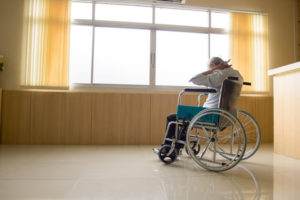
- Cognitive decline
- Death
- Hospitalization
- Physical injuries, such as broken bones
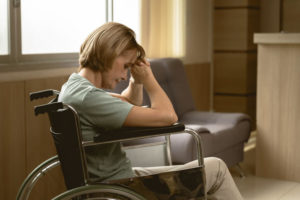
- Anxiety
- Depression
- Emotional distress
- Guilt and shame
- Higher risk of death
- Post-traumatic stress disorder (PTSD)

- Guilt and shame
- Post-traumatic stress disorder (PTSD)
- Sexually transmitted infection (STI)
- Sleep disturbances
Additionally, financial abuse and financial exploitation of elders are believed to add up to somewhere between $2.6 billion and $36.5 billion in stolen funds per year.
Older adults who have been abused have a 300% higher risk of dying within one year than those who were not abused.
The consequences of elder abuse and neglect can be severe no matter what form of abuse an elderly person experiences. For this reason, many people choose to take legal action by contacting a personal injury lawyer.
Filing a nursing home abuse lawsuit has helped many families seek justice and money for the needless suffering or even death of their loved ones.
How Much Are Nursing Home Abuse Settlements?
Settlement amounts vary, but a 2003 study by Health Affairs found that the average nursing home abuse settlement is a little over $400,000. Wrongful death cases, in which nursing home abuse leads to a victim’s death, are often valued at over $1 million.
Some factors that impact the amount of nursing home abuse settlements are:
- Amount and strength of evidence
- Intentional harm
- Pain and suffering
- Severity of abuse and injuries
- State in which the abuse occurred
- Witnesses
Nursing home abuse settlements can range from thousands to millions of dollars depending on these and other factors. Looking at nursing home abuse statistics from past cases makes it possible to determine a range.
Some notable nursing home abuse settlements include:
- $2 million for a plaintiff in Pennsylvania
- $1.35 million for an Alabama resident with a shoulder injury
- $1.2 million for a resident in a Chicago nursing home
- $1 million for a California woman whose mother died
- $600,000 on behalf of an Alzheimer’s patient in Massachusetts
What Can I Do About Nursing Home Abuse?
Nursing home abuse statistics are both alarming and heartbreaking. What’s worse, as our aging population increases, the problem of elder mistreatment is likely to intensify. This is why it becomes even more essential to take action.
“The aging of the baby boom generation could fuel more than a 50% increase in the number of Americans ages 65 and older requiring nursing home care, to about 1.9 million in 2030 from 1.2 million in 2017.”
— Population Reference Bureau
The best thing to do about nursing home abuse is to listen to your loved ones and monitor their behavior. If they are in danger, call 911 immediately.
If your loved one is not in grave danger, you may wish to report the abuse to the care facility administrators. You can also contact Adult Protective Services (APS), reach out to your state’s long-term care ombudsman, or speak with a nursing home abuse lawyer about potential legal action.
How Do I File a Nursing Home Abuse Lawsuit?
You may ultimately decide the best course of action is to contact a nursing home abuse attorney to hold abusers accountable and pursue the funds you need to move your loved ones to a higher-quality facility where they won’t be mistreated.
We can connect you with a nursing home abuse law firm that has:
- Decades of experience
- Nationwide reach
- A track record of recovering compensation for victims
Your loved one’s safety and dignity are too important to ignore. Speak with a nursing home abuse lawyer in our network today.
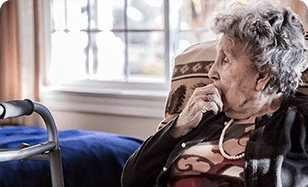 Get Legal Help Now
Get Legal Help Now
